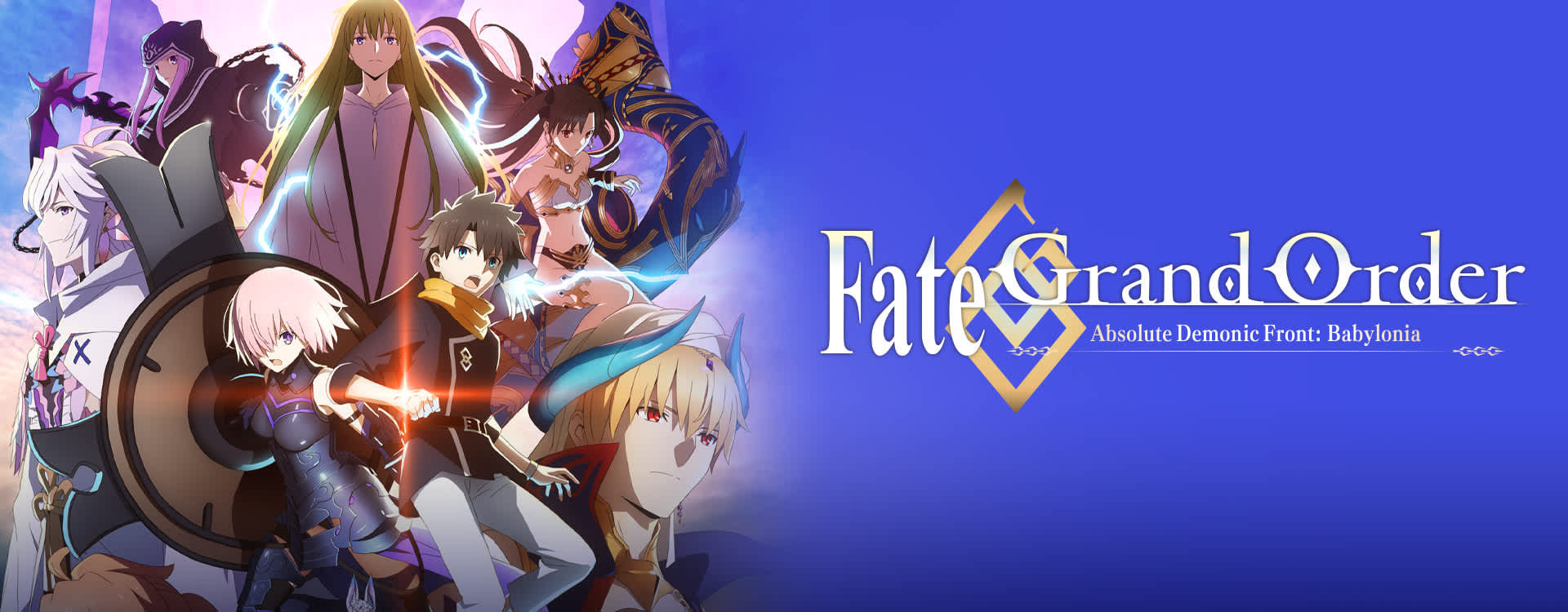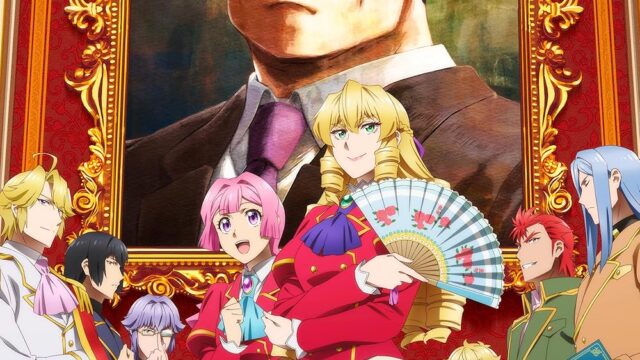English Dub Review: Fate/Grand Order Absolute Demonic Front: Babylonia; “Good Morning, Goddess of Venus”
Overview (Spoilers Below)
After the battle with the recently revealed Gorgon, Gilgamesh begins enacting a plan with Ritsuka and company to take out all three of the goddesses that plague Mesopotamia.
Our Take
In the aftermath of the great battle with Tiamat, who has been revealed to be Gorgon, Gilgamesh summons Ritsuka and his compatriots. In this meeting, they take stock of the situation and do something they should have started doing a long time ago: come up with a plan to take out the Three Goddess Alliance. After far too many episodes of dragging us through the mud, expositing, and losing two precious warriors, the crew finally formulates a strategy to tackle these divine threats.
Their first step in combatting the goddess’ alliance is to deal with the goddess Ishtar. But instead of killing her, they decide to recruit her over to their side via extravagant bribery.
When they arrive at her temple atop a snowy mountain, the structure is exactly like her: needlessly ornate and ostentatious. Ishtar then haughtily emerges and requires little provocation to start a fight. Ana and Mash take her to task in a brief but fairly impressive battle. Like before, she easily falls into one of Ritsuka’s painfully obvious traps.
Ritsuka showers the battlefield in jewels, which Ishtar cannot resist as her magic is powered by jewels. Whether this or some underlying greed is the cause of her obsession with material wealth seems to be left appropriately vague. After some very hammy acting from Ritsuka, Ishtar foolishly concedes and joins their group, though this doesn’t stop her from acting like an entitled brat.
But as annoying as Ishtar as, and as annoying as she will probably continue to be, we do get a small handful of character moments with her.
Just after Ishtar joins the crew, they have a short conversation where they fully exposit Ishtar’s origins. Romani questions if Ishtar killed the girl whose body she is possessing in the process of manifesting in this world. Ishtar explains that she did not and that she and the girl merged into one personality. Mash watches this with bated breath, as she is a demi-servant in a slightly similar situation, pondering how much of her humanity she truly possesses. In witnessing the confidence Ishtar exudes as she explains how she maintains some part of her humanity, Mash breathes a sigh of relief.
Later, Ritsuka has a one-on-one with Ishtar over their campfire. When Ishtar sneezes in the middle of the conversation, she mysteriously glows and Ritsuka instinctively backs away from her without thinking about it. Ishtar recognizes this as a familiar phenomenon and laments it. What actually happened here is never explained at all, with Ritsuka making no effort to question it. Is it something like she lost control of her divine power for a moment and as it seeped out, Ritsuka anticipated disaster? Or is this some other, more distinct power at play? I find it odd how fast this is dropped in and left behind.
The meat of Ritsuka and Ishtar’s conversation concerns Ishtar’s rather complex view of humanity. She believes that a human’s life is inherently full of incredible suffering and that the only way to bear living with it is to blame all of that suffering on the gods. But over time, humans as a society have moved away from the gods and instead choose to rely on themselves. Ishtar believes that abandoning the gods like this is a mistake and that soon they will be unable to handle living on their own. Though she views them forsaking her as a foolish betrayal, she still cares for them deeply and tries to help where she can.
There is a lot to take away from this discussion. Obviously, there is a very hefty deconstruction and examination of religion and theology present here. More pertinent to this anime though, it’s a far more detailed window into Ishtar’s character than we’ve seen before. Her “methods” of helping the citizens of Mesopotamia are still clumsy, boorish, and unwarranted. But we finally see the real concern she still has for the people who once worshipped her.
I’ve no illusions that Ishtar will continue to act obnoxiously impudent, but maybe there will be more sincere moments like this as well. And there remains the question of how cooperative Ishtar will truly be.
























"There are also other characters that come and go (also owned by the Warner Bros. Discovery conglomerate media company)."
Huh. Is that just referring to other characters from the show itself, or is this implying that the new season is going to have cameos from other WBD IPs